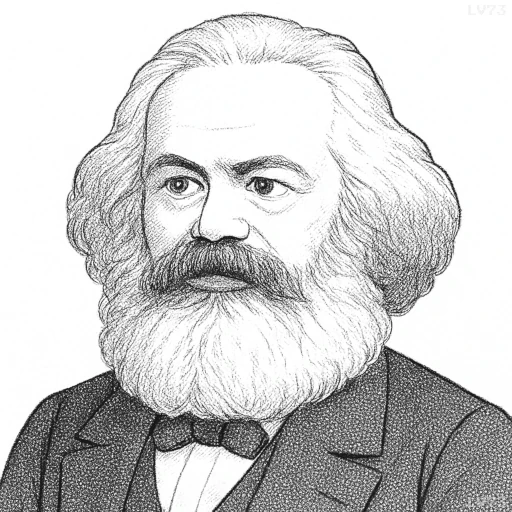“Men’s ideas are the most direct emanations of their material state.”

- May 5, 1818 – March 14, 1883
- Born in the Kingdom of Prussia (Germany)
- Philosopher, economist, political thinker
table of contents
Quote
“Men’s ideas are the most direct emanations of their material state.”
Explanation
In this quote, Marx argues that ideas are not formed in isolation, but are deeply shaped by the material conditions and social structures in which individuals live. In other words, people’s thoughts, beliefs, and consciousness are a reflection of the economic and social realities that they experience. These ideas emerge from people’s material existence—their work, economic relationships, and social roles—and serve to justify or perpetuate these conditions. Marx’s materialist theory suggests that the way people view the world, form ideologies, or develop systems of thought is shaped by the material forces around them, such as the mode of production and the class structure of society. The dominant ideas of any given time are thus a reflection of the interests and values of the ruling class, which uses these ideas to reinforce its position.
Historically, Marx saw the ruling class as controlling not only the economic and political power but also the intellectual and cultural production of society. This control allows them to shape ideas in a way that legitimizes the existing system of exploitation and dominates the minds of the lower classes. For example, under capitalism, the dominant ideas—such as those promoting individualism, competition, and the free market—serve the interests of the bourgeoisie (capitalist class) by presenting capitalist relations as natural, efficient, and desirable. The working class, on the other hand, is often alienated from these ideas, as their own material conditions are shaped by the unequal distribution of wealth and power.
In modern contexts, this quote is relevant when examining the way that social conditions shape ideologies and political beliefs. For instance, the neoliberal ideas of the late 20th century—emphasizing privatization, free-market capitalism, and individual responsibility—are often promoted by the wealthy elite and corporate interests, serving to maintain a system of economic inequality. These ideas are not just abstract theories but are rooted in the material interests of those who benefit from the capitalist system. Marx’s perspective reminds us that social change cannot be achieved by simply changing ideas in isolation; rather, it requires a transformation of material conditions, such as the redistribution of wealth, power, and resources.
Would you like to share your impressions or related stories about this quote in the comments section?
